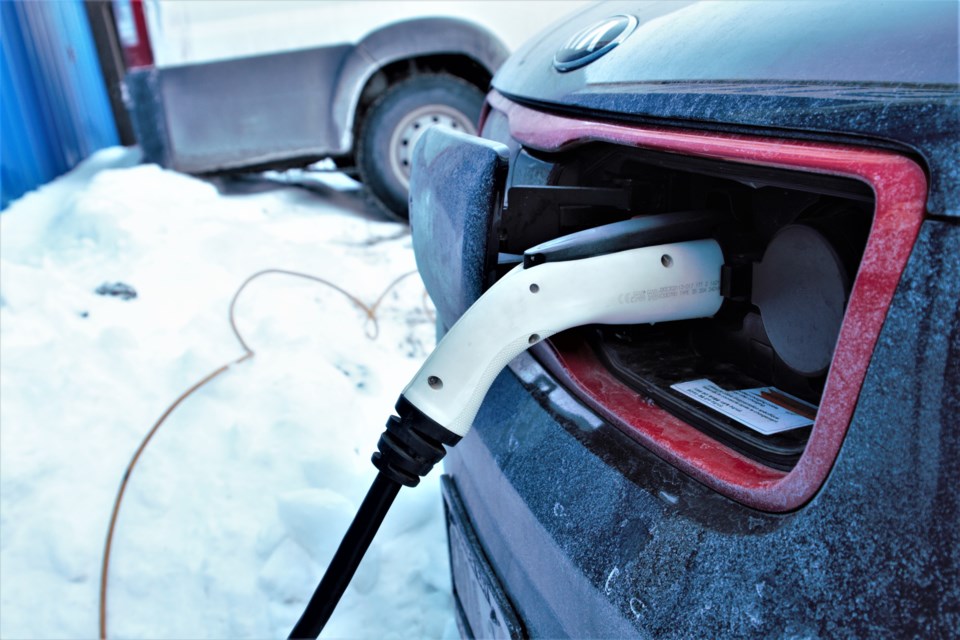THUNDER BAY — Zero-emission vehicles are still hard to sell in Northern Ontario.
Research conducted for the Northern Policy Institute found that only 2.2 per cent of all new zero-emission vehicles sold in the entire province last year were registered in Northern Ontario.
The region has approximately five per cent of the province's population.
The federal government defines a zero-emission vehicle as a battery-powered electric vehicle, a plug-in hybrid vehicle or a vehicle powered by hydrogen fuel cells.
For every 10,000 residents of the North, six zero-emission vehicles were registered last year, compared with 15 vehicles for every 10,000 people province-wide.
But Ontario itself does not compare well with some other jurisdictions.
Only 3.2 per cent of new vehicle registrations in the province last year were zero-emission vehicles, compared with about nine per cent in Quebec and 12 per cent in British Columbia.
Canada as a whole lags significantly behind registrations in other countries, with 5.2 per cent of new registrations in 2021 compared with over 20 per cent in Germany and over 15 per cent in the UK and France.
Author Amelia Spacek, in a paper titled Slow to Change? How Canada's E-vehicles Experience Measures Up Globally, says government incentives and rebates appear to make a big difference in jurisdictions where they are offered.
Electric vehicle sales in Ontario dropped sharply after the province dropped rebates for both electric vehicle purchases and the installation of at-home charging equipment in 2018.
When a federal incentive program was introduced in 2019, sales began to rise slowly.
Both B.C. and Quebec currently offer provincial rebates in addition to the federal program, but Ontario does not.
Spacek found similar trends in sales in relation to cash incentives offered across Europe.
Norway went from a zero-emission vehicle market share of five per cent of new vehicles — where Canada is now — to 86 per cent in less than a decade, partly by taxing them at a rate less than half that of gas-powered vehicles.
Spacek said the upfront cost of purchasing an electric vehicle remains a big barrier for many Canadians.
"You don't necessarily see electric vehicles around all the time, and since we're so reliant on our vehicles I think we're hesitant to try something new when we have concerns that they might not meet all our needs," she said.
In her paper, Spacek points to some specific geographic challenges in a country as large as Canada.
"People want to know that there will be enough charging stations to get where they want to go comfortably before forgoing their gas-powered cars," she wrote.
"Canadians' concerns, especially those relating to range limitations and charge-point availability along long stretches of highway, cannot be erased by success stories in other, smaller countries."
In Northern Ontario, Spacek said, more and more charging stations are being set up, but largely along major highways.
"As soon as you go elsewhere, your options go down. There's obviously more to be done."
She said the Northern Policy Institute is doing more research focusing on the usability of zero-emission vehicles outside major population centres, the impact of cold weather on their range, and the suitability of charging infrastructure in Northern Ontario.
In two announcements last year and last spring, the Thunder Bay Community Economic Development Commission said federal funding would help triple the number of electric vehicle charging stations in the city by the end of 2022, including at public spaces and in private and semi-private locations such as apartments, small businesses, restaurants, and auto dealerships.
A CEDC spokesperson could not be reached for an update on that project.
— TBNewswatch




